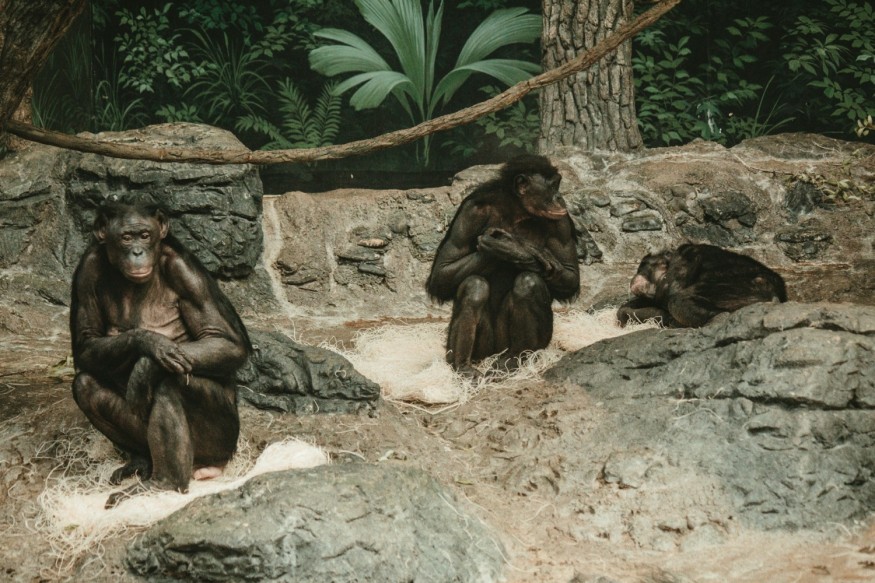Bonobos belong to a species of great ape that shares almost all of Homo sapiens DNA, making them one of our closest relatives. For decades, the modern scientific community has studied various species of non-human primates, including monkeys, apes, and chimpanzees, to understand a range of subject matters that relate the primates to humans.
Research relating to behavior, social interaction, language, and medicine are some of the major themes as to why scientists are curious about our primate relatives.
Now, a new study led by biologists in the United States and Germany has found that humans are not the only ones capable of engaging in strategic alliances, particularly outside our family and circle.
The scientists found that a non-human primate species can engage in similar alliances outside their social borders or group boundaries. The study is talking about the bonobo (Pan paniscus), historically referred to as the pygmy chimpanzee, and is one of the two species that belong to the genus Pan.
Bonobos Cooperation

In the study published in the journal Science on Thursday, November 16, researchers focused on bonobos cooperation but highlighted the context that humans are adept at cooperating with other people outside their group boundaries. Among H. sapiens, these social alliances or camaraderie are further strengthened by different structures and aspects of the society, including communities, culture, tradition, and even religion.
In this context, the research team found that bonobo apes who are cooperative within their group can also get along with other members of their species in a different family or group. Furthermore, the team confirmed that the wild primates can also engage in meaningful and significant alliances outside their social borders even without the strong culture and tradition that human societies possess.
Also Read : Bonobos Create Sophisticated Stone Tools and Spears Like Chimpanzees and Early Humans, Researchers Say
Primate Evolution
Since the Science study resides in the fields of biology and zoology, its authors relate their findings with evolution since the biological and historical emergence of cooperation beyond familial and close-knit groups among humans remains unclear. To address this mystery, the team focused on bonobo alliances but in the aspect of grooming, coalition, and food-sharing patterns among their kin.
The study concludes that cooperative behavior outside social borders and group boundaries is not exclusive to humans. With this, the findings shed light that other non-human primate species may also be capable of such behavior. In addition, it also opens the possibility that early humans may have lacked a sense of cooperation and social integration with other individuals.
Previous research in the past shows that what drives non-human primates to cooperate or help others all boils down to their social intelligence and the behavioral phenomenon of kinship altruism. Based on 2011 research published by the Oxford University Press, evidence shows that some animal species are motivated to establish rapport or long-term bonds with specific partners, which enhances longevity and offspring survival.
Related Article: Attractive Females Dominate the Social Circle: Bonobo Study
© 2026 NatureWorldNews.com All rights reserved. Do not reproduce without permission.





